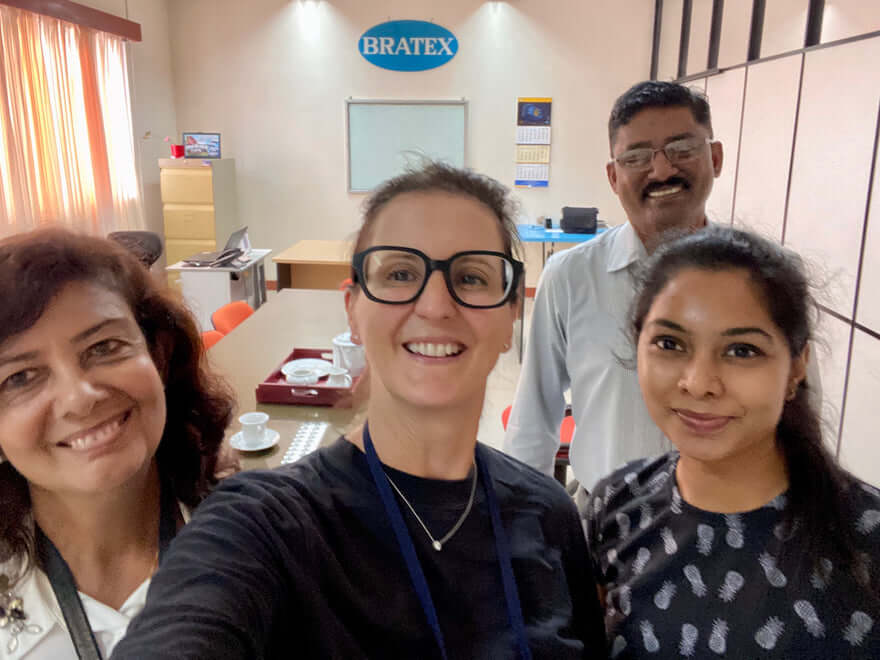
Heading back from the UK last week I managed a stopover in Sri Lanka to meet a new factory for us, who made up our excess vintage peach organic cotton and black tencel into our original style bras.
In Sri Lanka, raw materials are imported into a highly regulated tax-free zone and can only come out as finished product, so when I parted ways with my last factory, I was stuck. You know how I hate waste!
I've known the owner of this factory for years. Introduced by a mutual friend, he's become a friend and mentor over many years and when I told him of my predicament, despite being a much larger factory for me, he kindly offered to help me out with my small runs.
The process went like a dream frankly - lovely merchandisers, easy to deal with, minimal errors - so I was glad to be able to meet them in person.
I was simultaneously manufacturing our new Latte and Nursing Bra with a new factory in Portugal, so it was a hectic few months!
After the political unrest in SL last year and it's massive impact on my orders and business, I had pretty much decided to walk away from SL, but learning more made me understand that walking away disproportionally disadvantages women in these countries, whose only employment options are often garment factories. Many families have been forced into poverty by the political turmoil and mega inflation, which has resulted in big brands pulling big orders from factories, and people left with no options.
I was pleased to learn that this factory pays twice the minimum wage (minimum wage being lower than living wage in SL) and I'm still getting my head around what that means in terms of living wage, so many sources, so much inflation. I need to learn more, which I will. The factory has equal numbers of men and women in management which was great to see, and it provides free transport and breakfast. When I walked the floors, there were many smiling faces, the women made ready eye contact, were curious and wanted to engage. I promise you, it doesn't always feel like this in factories.
Minimum age in the factory is 18. Interestingly, retirement age in SL is 50 for women and 55 for men, although they can choose to work longer. To achieve this, the employer pays 15% into an Employer's Provident Fund and the employee 8-9%. The audit I saw from November 2022 was straight A's apart from working hours which were over the standard 8 hour day, but I understand this can happen when work is not scheduled optimally, and by delays in materials arriving.
What does it all mean? Well I do love Sri Lanka and the people, and I understand it is important to support, and work with struggling, developing nations, so I will still continue to look for opportunities to work there if I have the volume they require. I will still also make in the EU. The experience of the geopolitical unrest in Hong Kong in 2019 and Sri Lanka 2022 has taught me you need to keep your options open.
There's a really interesting article by Good On You on this topic which it's worth reading. The extraordinary fact for me is:
'Researchers Hall and Wiedmann found that increasing the cost of clothing made in India an average of 20c per item would be enough to lift all Indian garment workers out of poverty'
We have to work with developing nations to address the inequality and as consumers and brands, demand better.











